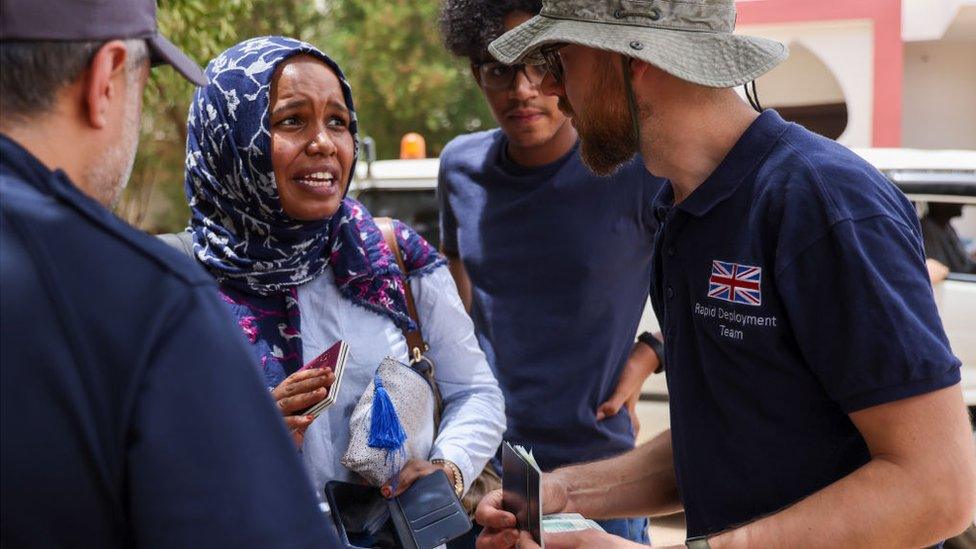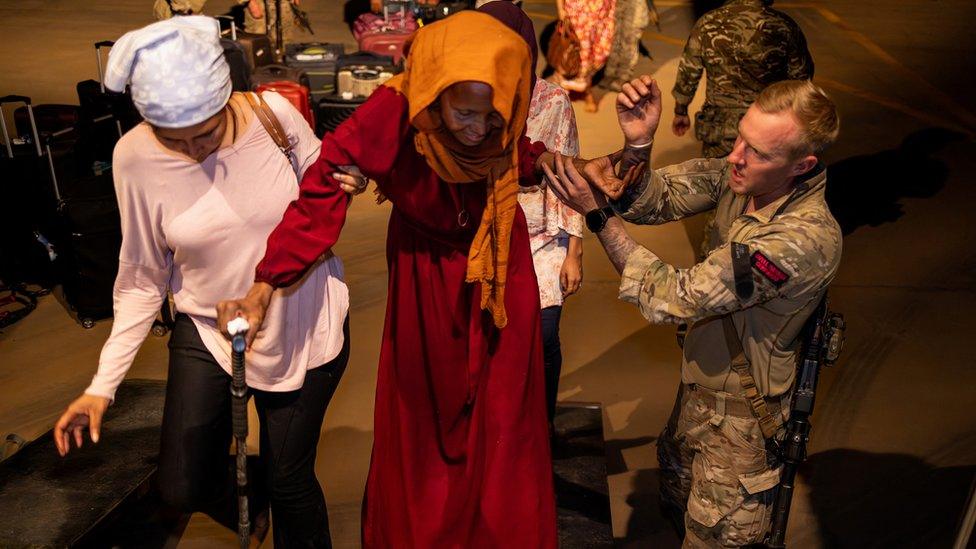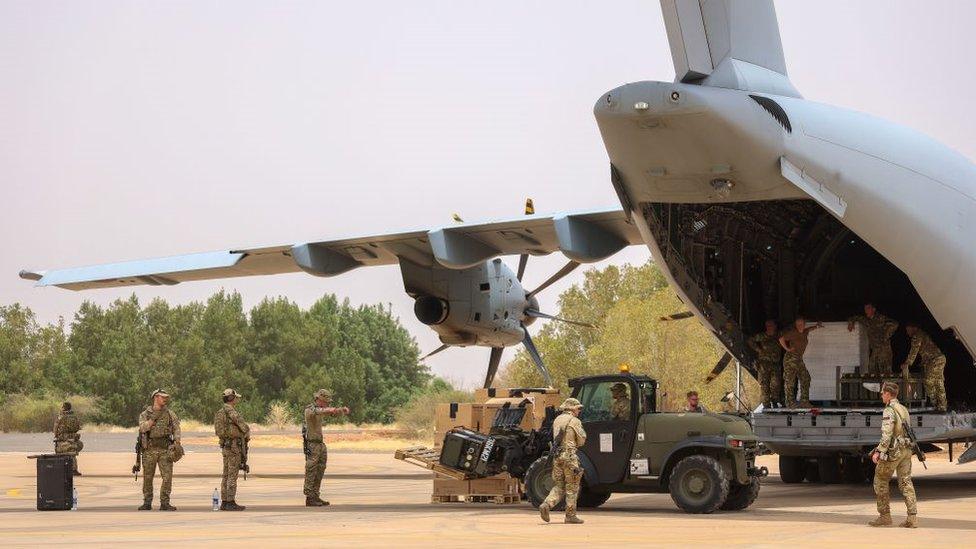Chris Mason: Sudan evacuation remains a race against time
- Published

UK nationals have to make their own way to an airstrip near Sudanese capital Khartoum to be evacuated
This is a race against time, circumstances and numbers.
And all three are bleak. Time is ticking down to the ceasefire ending.
The circumstances are grim: unpredictable, volatile and dangerous.
And the latest numbers published by the Foreign Office make it look, on the face of it, like it will be very difficult to get every Brit out in time before the fighting resumes.
The Foreign Office have said 536 people have now been evacuated from Sudan on six UK flights as of 21:00 GMT on Wednesday evening.
Estimates as to how many British passport holders there are in Sudan vary considerably, but it is widely expected to be a few thousand at least.
And the Foreign Secretary, James Cleverly, has candidly spelt out that the ceasefire ends on Thursday night and "we cannot guarantee how many further flights will depart once the ceasefire ends".
But, having spoken to people across government, they feel things are going as well as could be hoped. A phrase I keep hearing is the "calibration of risk." Rolling risk assessments of what is possible. How to help, without jeopardising the safety of the rescuers or the rescued.
It should not be a "race to get it wrong", as one figure put it. But being the last to get it right is not a prize anyone wants either.
You can hear the exhaustion and sleep deprivation in the voices of those working on this. There is talk of people sleeping on sofas in between long stints in the Foreign Office's Crisis Centre.
Sources tell me there is the capacity to increase the frequency of flights out of Khartoum, if needs be. There is also the option of taking people out by ship from Port Sudan. But the focus is on those flights, for now.
Contingency planning is under way for what to do when the ceasefire ends.
All this, as the government faces criticism from some that they have been too slow.
Some of those flown out of Sudan have expressed gratitude at being rescued in their first sentence, and criticism at its lack of pace in their second.
And there have been comparisons with how other countries have managed things.
France, for instance, collected some of its people who wanted to leave, rather than asking them to make their own way to the airfield. One of their soldiers was seriously injured in the process.
UK Special Forces were used to extract British diplomats. But the government argues it would be hugely dangerous to provide what would amount to an armed taxi service to take people to the airport, as it would risk drawing the UK into the conflict.
And the numbers of citizens it is attempting to help is far greater than other comparable countries.

Foreign Secretary James Cleverly said the UK can not guarantee how many more flights will depart Sudan when the ceasefire ends
Incidentally, as my colleague, the BBC Berlin correspondent Jenny Hill, has reported, there has been something of a spat between the German government and the UK government, with Berlin accusing London of delaying the evacuation of its own citizens by landing in Sudan without permission at the weekend.
There is private shock here that Germany went public with this and a desire not to be drawn into a diplomatic tit for tat over it. The Foreign Office and Ministry of Defence are denying the allegation.
It is worth mentioning too that there is not a domestic political row here at Westminster about how the government is handling things.
Privately some Labour figures think it has been too slow. But they are not leaping to criticise ministers - perhaps conscious any critique would, by extension, be seen as undermining the armed forces, diplomats and others doing all they can in very difficult circumstances.
The political argument may, of course, change, as that race against time, circumstances and numbers continues with the prospect it gets considerably more difficult.

BOARDROOM BATTLES: It's Australia's toughest job interview!
BOWELBABE IN HER OWN WORDS: The extraordinary life of Deborah James

Related topics
- Published27 April 2023
